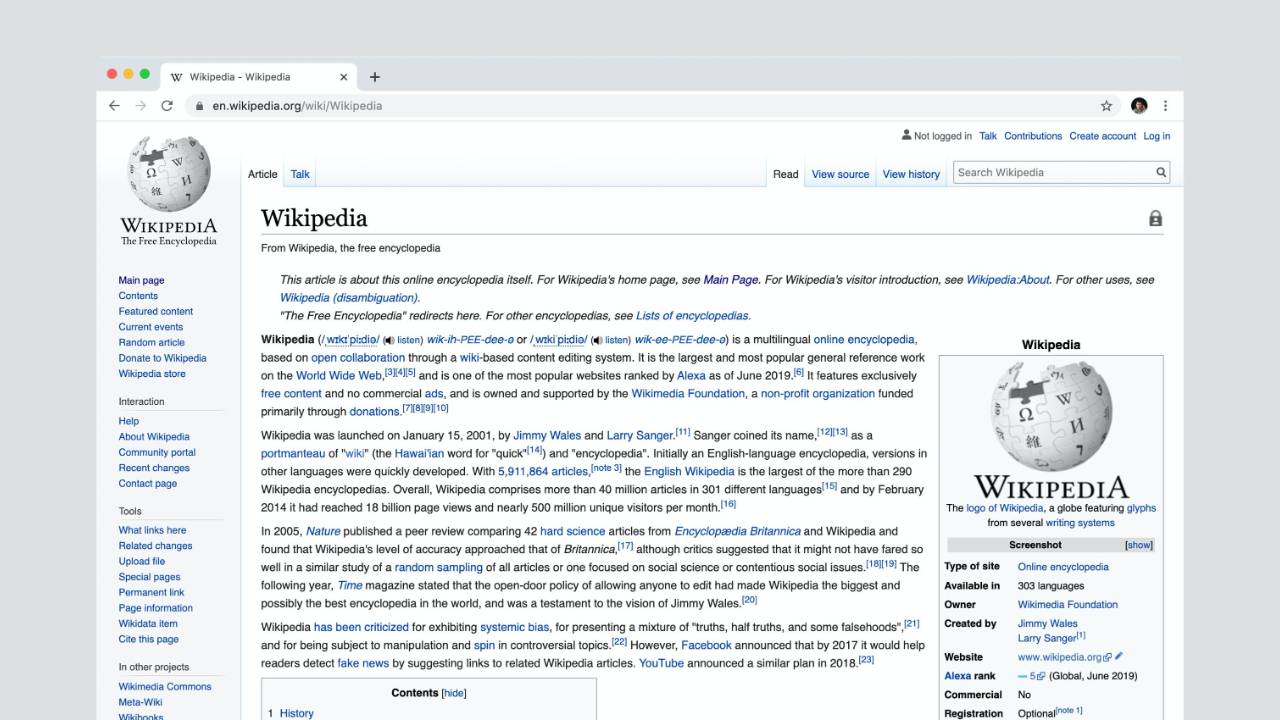Tip: Don't be afraid to use wikipedia to source for keywords
Jul 03, 2023
Wikipedia always had a bad rep in academia for being inaccurate, poorly referenced and poorly reviewed. And with much warning from academics, students steer clear of them. While I agree that they are not the best sources for reliable information, they nonetheless still serve as an encyclopedia which is often written in a rather accessible and understandable manner.
I do not mean that students should be using Wikipedia as literature sources but because it is an encyclopedia, albeit openly editable, it is a very good place to orientate oneself particularly when one is approaching an unfamiliar topic.
Wikipedia articles are written by many people
Because Wikipedia is openly editable, you will realise a great deal of inconsistencies in the terms and key words used. A reason for the difference in the use of words is because of global interpretations of the same topic. For example, “physical therapy” is an American term while in the UK, the word “physiotherapy” is used in its place. Wikipedia sometimes acknowledges these by clarifying it in the page’s introduction or you can find this under the “disambiguation” links usually at the top of the article.
From just the above introduction, you can find more than 10 keywords (note the words in blue) in relation to the topic of physical therapy. These keywords can then be used for your actual literature search using the reputable databases of your choice.
Wikipedia is a good place for a quick summary
Wikipedia is written for the masses, therefore you will realise that it tends to be quite accessibly written. This is particularly helpful when you are exploring a rather esoteric topic like a certain branch of philosophy, where they seem to use a rather alien set of vocabulary. Wikipedia can provide you with a quick overview of the key topics in the field, key writers, a brief definition of the topic and its related fields. Naturally, ALWAYS confirm and supplement your knowledge with a more indepth literature search later. Also, use more reliable peer-reviewed information sources as references later.
One issue with published articles is that it assumes prior knowledge of the topic. As authors, we have word limits on our publications and so we often omit basic information that we expect our readers to know. That is why published papers can appear so vague or foreign to outsiders who are not familiar with the jargon, expression, style, and idiosyncrasies of the field. Wikipedia can induct you into the topic quite quickly.
Wikipedia is a tool
It is a great way to approach a new topic that you do not have much knowledge about. Being knowledgeable is not about reading stacks of papers on a topic. It is about thinking critically about a certain topic and formulating your understanding with reliable information. Wikipedia is powerful in the sense that it practically covers every topic you can think of. It is a great place to get acquainted with the general information about the topic, so why not make full use of it, with a critical mind of course!
Treat Wikipedia as you would any literature source
Even published articles can be poorly written and poorly substantiated. Like any literature source, your job as a student is to question what you read. Consider the rigour, provenance, reliability, validity, veracity of the information on Wikipedia, as you would any published paper.
*Side note, some seemingly reliable websites are about as unreliable as Wikipedia with the lack of author names, publish date, fact-checking etc*
For Students
Academics are right to distrust sources like Wikipedia, but if you can approach it with a critical mind, it can serve as a launchpad to a more elaborate literature review and a greater understanding of the topic of interest.
For Academics
I think sometimes we need to remind ourselves that ivory tower scholarship is mocked precisely because we are so accustomed to dealing in the esoteric that we forget to induct newcomers into our fields. Even our textbooks and handbooks sometimes need to come with its own reader guide and glossary page. If Wikipedia can facilitate the induction of new learners into our fields, then the onus is on us to make it as reliable as possible rather than damning the encyclopedia to hell. It is simply doing what some of us are too arrogant or neglectful to do, teach.

